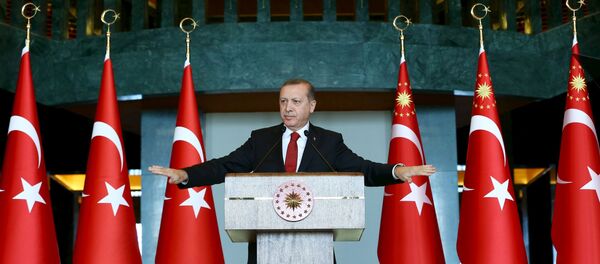In the course of the last 15 years the US has been involved in several military campaigns overseas; however, the irony of the situation is that none of these conflicts actually posed an existential threat to the United States.
"If you believed America's longest war, in Afghanistan, was coming to an end, be advised: It is not… Nor is America about to end the next longest war in its history: Iraq," US conservative commentator and syndicated columnist writes in his op-ed for The American Conservative.
In turn, Saudi Arabia gives no peace to the US in requesting surveillance and military assistance for its controversial war against Yemen.
The question then arises, whether Washington should meddle in regional quarrels and internal affairs that have nothing to do with America's national security.
David Ignatius nailed it by making a follow up remark in his op-ed for The Washington Post: "Most players still want to hold America's coat while the United States does the bulk of the fighting."
Putin is winning in Syria.
— Michael McFaul (@McFaul) 12 февраля 2016
Commenting on the matter, CIA veteran Paul R. Pillar added that "too often what is labeled as leadership is really more like followership, in that it gets measured in terms of what other, coat-holding governments would like the United States to do."
"…for the boss to do everything himself or herself is not seen as leadership but rather as a sign of inability to exercise leadership," he noted in his article for The National Interest.
Interesting observation… https://t.co/wSMWzEQNHv
— Matt Lee (@APDiploWriter) 12 февраля 2016
But this is only half the story.
"Despite America's being tied down in wars from the Maghreb to Afghanistan, not one of these wars were among the three greatest threats identified last summer by Marine Gen. Joseph Dunford, the new chairman of the Joint Chiefs," Buchanan continues.
However, the chairman of the Joint Chiefs did not clarify how exactly Moscow, Beijing or Pyongyang threatens America's national security.
Dunford failed to explain why Washington should take to heart Russia's regional dispute with Ukraine, or China's local territorial disputes over uninhabited rocks and reefs in the South China Sea.
"America is creeping ever closer to war with the other two great nuclear powers because we have made their quarrels our quarrels, though at issue are tracts and bits of land of no vital interest to us," Buchanan stresses.
Buchanan quotes James Madison, the fourth President of the United States, who wrote: "Of all the enemies to public liberty war is, perhaps, the most to be dreaded. No nation could preserve its freedom in the midst of continual warfare."
"Perhaps Madison was wrong. Otherwise, with no end to war on America's horizon, the prospect of this free republic enduring is, well, doubtful," the conservative commentator concludes.




